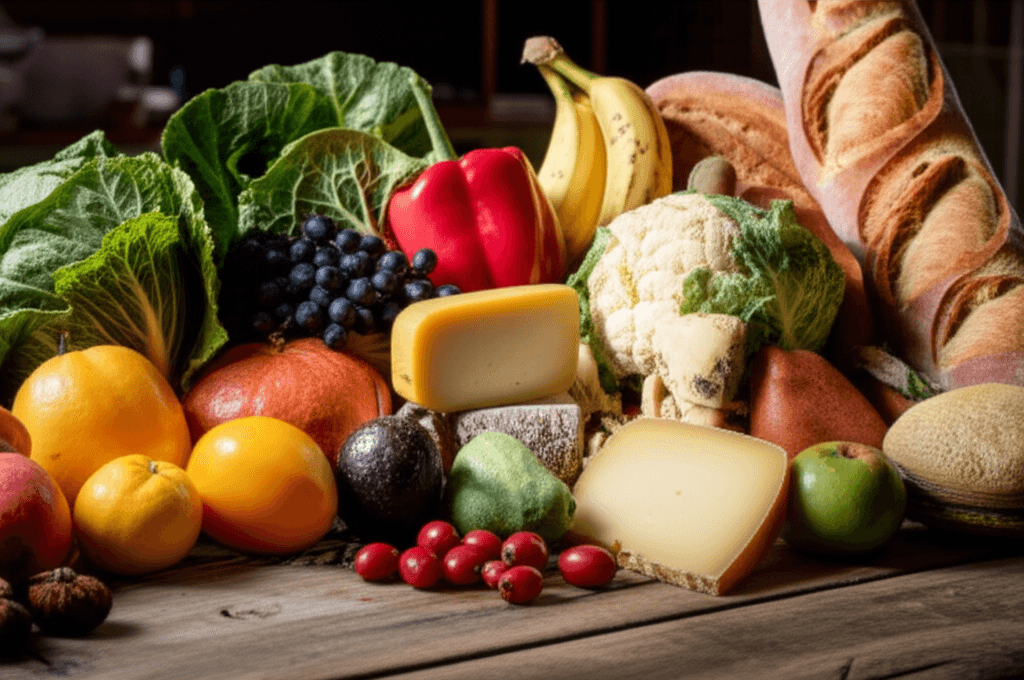For decades, the “French Paradox” has fascinated health experts and dieters alike: how do the French maintain a relatively low obesity rate despite a culture renowned for its rich cheeses, delectable pastries, and regular wine consumption? While other Western nations grapple with rising weight concerns, France appears to have cracked a code to enjoying food without the widespread weight gain.
US-based fitness coach Dan Go recently highlighted this phenomenon, sharing nine key reasons he believes French people stay slim. His observations, supported by broader cultural analyses, suggest that it’s not about deprivation or genetics, but rather a deeply ingrained relationship with food and lifestyle. Let’s delve into these insights, exploring how these habits contribute to a healthier, more balanced approach to eating and living.

The French Approach to Food and Wellness
The stark contrast in obesity rates — approximately 9.4% in France compared to 30.6% in the US, according to Dan Go and other statistics which show French rates at 21.60% versus 36.20% in the US — underscores a fundamental difference in dietary and lifestyle patterns. The French perspective on food isn’t merely about sustenance; it’s about pleasure, quality, and mindful consumption.
1. Cultural Portion Control
One of the most noticeable differences is the inherent portion control woven into French culture. “In France, ‘small’ is normal,” Dan Go notes. Coffee cups are smaller, sandwiches aren’t “footlong,” and meal sizes are generally not supersized. This cultural norm for smaller servings means fewer calories consumed without a feeling of deprivation. From restaurant servings to supermarket packaging, moderation is deeply embedded, making it easier to consume less.
2. Structured Meal Times
The French typically adhere to three distinct, proper meals a day: breakfast, lunch, and dinner. Snacking between meals is rare and often discouraged, helping to stabilize appetite and prevent constant “grazing.” This structured approach contrasts sharply with cultures where constant snacking, especially on processed foods, contributes to higher calorie intake and weight gain.
3. Eating Slowly and Mindfully
Meals in France are often a leisurely affair, treated as an event to be savored and shared with others. People sit, talk, and genuinely enjoy their food, rather than rushing through it or eating on the go. This slower pace allows the brain ample time to register fullness, preventing overeating. Mindful eating practices, such as taking time to chew and appreciate flavors, are a natural part of their dining experience.
4. Quality Over Quantity
The bedrock of French food culture is a deep appreciation for taste and freshness, prioritizing quality ingredients. Rather than focusing on filling up on large amounts of mediocre food, the emphasis is on enjoying smaller portions of high-quality, often locally sourced, seasonal ingredients. This ensures satisfaction with less, as the richness and flavor of superior ingredients provide a more fulfilling experience.
5. No Food Restrictions (Emphasis on Balance)
Unlike many restrictive diet trends, French culture generally avoids labeling foods like bread, butter, wine, or pastries as “bad” or cutting them out entirely. Instead, these items are enjoyed in moderation as part of a balanced diet. This inclusive approach can prevent the psychological backlash and overconsumption often associated with strict food prohibitions. The key is enjoying “the real stuff” in small portions, rather than seeking artificial, low-fat versions often laden with sugar.
6. Minimal Liquid Calories
The French tend to consume fewer liquid calories, such as sodas or sweetened beverages. While wine is enjoyed regularly, it’s typically in limited, moderate portions, often with meals. This habit reduces hidden calorie intake that can quickly accumulate from sugary drinks.
7. Built-in Daily Movement
Physical activity is often integrated seamlessly into daily French life, rather than being solely a dedicated gym activity. Many French people walk or cycle as their primary mode of transportation for errands, commuting, or simply enjoying their surroundings. Cities are often pedestrian-friendly, encouraging more incidental physical activity. This “built-in” daily movement contributes significantly to overall calorie expenditure and metabolic health.
8. Food Is Not for Emotional Comfort or Entertainment
In French culture, food is primarily viewed as a source of pleasure and a social event, not a means of emotional comfort or entertainment. This mindset helps to decouple eating from emotional states, reducing the likelihood of stress-induced or boredom-driven overeating. Meals are a beautiful form of discipline and existence, enjoyed rather than devoured.
9. Government and Cultural Support for Health
Beyond individual habits, the broader French environment and governmental policies often support healthier eating. This can include regulations on food advertising, promotion of fresh and local produce, and a general cultural emphasis on health and quality of life. The collective societal values reinforce the individual practices, creating a supportive ecosystem for maintaining a healthy weight.
In essence, the French Paradox is less of a paradox and more of a testament to a holistic approach to food and life. By embracing cultural portion control, structured meals, mindful eating, quality ingredients, and integrating daily movement, the French demonstrate that enjoying a rich culinary heritage doesn’t have to come at the expense of a healthy weight.







